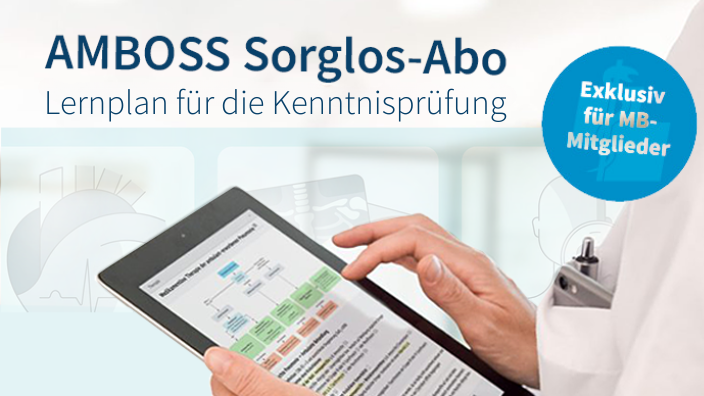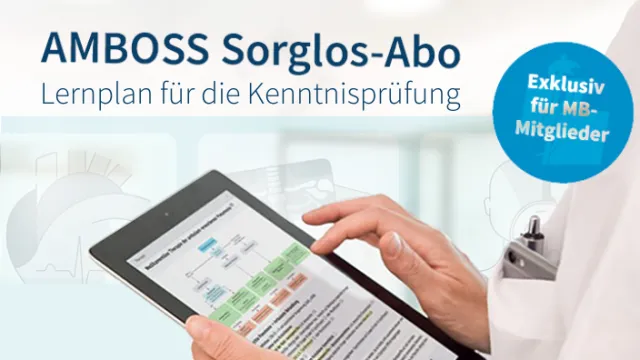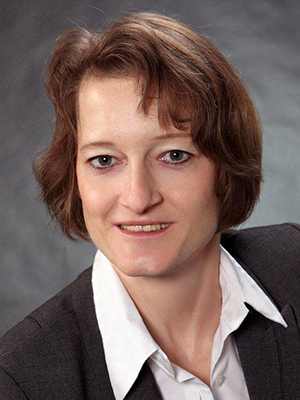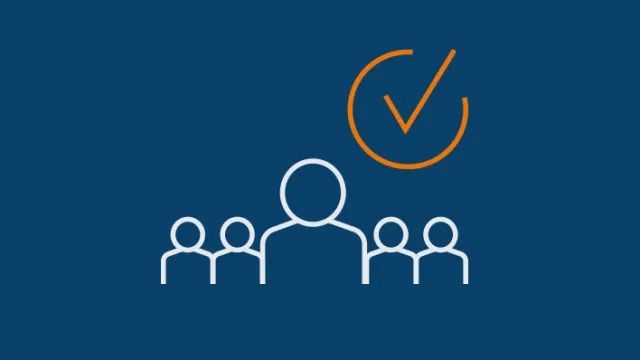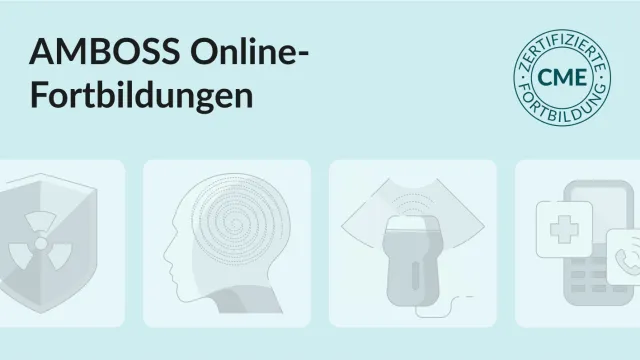as of Januar 2026
All foreign trained physicians who want to work in Germany as physicians must contact the competent Federal State registration authority (Approbationsbehörde) to have their basic medical training recognised. Competent is the registration authority of the German state in which the physician wants to work (see list: Addresses of Registration Authorities).
The recognition of the specialist qualification is only possible after the recognition of the basic medical training has taken place. The recognition of basic medical training and postgraduate training are two legally separate procedures that must be completed one after the other and are the responsibility of different institutions. The recognition of the specialist diploma is incumbent to the State Chamber of Physicians in which area the physician wants to work (see list: State Chambers of Physicians). Furthermore, in most states a membership in the State Chamber of Physicians is necessary.
You can apply for limited or full registration even though you have not found a position yet and you reside outside Germany. You should submit your application to the registration authority in which state you would like to work (see § 3 General Administrative Law Acts and § 12(3) Federal Medical Code).
Foreign trained physicians are nevertheless repeatedly confronted with the demand for job offers and similar proofs in order to credibly demonstrate their intention to work within the authority's area of responsibility.
Physicians who still live abroad and have obtained their medical training outside the EU/EEA should contact the Service Center for Professional Recognition (ZSBA) of the Federal Employment Agency (https://www.anerkennung-in-deutschland.de/html/de/pro/zsba.php). After the consultation, the ZSBA issues on request a "site note" which is accepted by most registration authorities as proof that the physician wants to work in a particular German state. The email address of the ZSBA is: zav.recognition@arbeitsagentur.de.
Physicians who were trained outside the EU/EEA and who already live in Germany can contact an IQ network office (https://www.netzwerk-iq.de/) and ask for a corresponding counselling certificate. A list of counselling centres is available at: https://www.anerkennung-in-deutschland.de/html/de/beratungssuche.php.
EU/EEA citizens with medical training from an EU/EEA member state can contact the European Commission's problem-solving network (SOLVIT) if they have difficulties: https://ec.europa.eu/solvit/what-is-solvit/index_de.htm.
The Service Center for Professional Recognition (ZSBA) of the Federal Employment Agency advices physicians who still live abroad and are interested in working in Germany free of charge and assists them in compiling the application documents for full and limited registration (https://www.anerkennung-in-deutschland.de/html/de/pro/zsba.php).
Foreign-trained physicians who already live in Germany can contact their nearest IQ network office for free advice and support: https://www.anerkennung-in-deutschland.de/html/de/beratungssuche.php.
Physicians who have completed their basic medical training outside Germany, have a right to get, upon application, an official notice regarding the equivalence of their basic medical training. The proof of German language skills is not a prerequisite for this notice. However, the physician will only be granted full registration (Approbation) once he/she meets the German language requirements and fulfills all other requirements.
No! You must decide where you would like to work as a physician and submit then your application to the registration authority in which state you plan to take up a job.
The competent registration authority (Approbationsbehörde) provides the information which documents must be submitted for the recognition of the basic medical training (see list: Addresses of Registration Authorities).
The competent State Chamber of Physicians provides the information which documents must be submitted for the recognition of the medical specialist diploma (see list: State Chambers of Physicians).
Since the taking effect of the so-called recognition law (1 April 2012) the citizenship is irrelevant for getting full registration in Germany.
A basic medical training completed successfully in a member state of the European Union will, on request, be automatically recognized in Germany provided that the qualification is listed in the European Directive on the Recognition of Professional Qualifications (2005/36/EC, Annex V No. 5.1.1), that the minimum criteria of the directive are met and that the basic medical training had been started after the specified reference date. Once the registration authority received all necessary documents it has to decide upon the application within a time limit of three months.
As the EU has passed corresponding treaties with Norway, Iceland, Liechtenstein and Switzerland, similar rules apply for diplomas from these countries.
If all the other requirements (knowledge of the German language, health requirements, no criminal record, etc.) are met, the applicant obtains full registration.
A basic medical training which was begun before the reference date will, on request, be automatically recognized in Germany if the applicant submits in addition to his/her documents a certificate of conformity. Herewith, the relevant authority of the country of training confirms that the basic medical training of the applicant corresponds to the minimum standards of the European Directive on the Recognition of Professional Qualifications. Alternatively, the applicant can submit a certificate from the relevant authority of the country of training (or another EU member state) stating that he/she has been full-time, effectively and lawfully engaged in the profession for at least three consecutive years during the five years preceding the award of the certificate.
If the basic medical training was completed before 1 January 2021, Directive 2005/36/EC continues to apply unchanged even if the application for recognition was submitted in Germany after 1 January 2021. Consequently, it is an EU qualification (for more details see question 8).
A basic medical training completed in the UK after 31 December 2020 is regarded as third-country qualifications (see question 12).
The European Directive on the Recognition of Professional Qualifications (2005/36/EC) can be downloaded under the following link:
http://ec.europa.eu/growth/single-market/services/free-movement-professionals/policy/legislation.
The European Commission has compiled information on the interpretation of the Professional Qualifications Directive (2005/36/EC) in a brochure:
The links of the EEA Agreement and the Bilateral Agreements are:
Upon application the competent registration authority (see list: Addresses of Registration Authorities) will assess the equivalence of the basic medical training obtained outside of the European Economic Area/Switzerland compared to the German basic medical training. If the competent registration authority confirms the equivalence or concludes that potential differences in the basic medical training can be compensated by pertinent work experience or other recognized skills and competences (lifelong learning) and if all the other requirements are met (knowledge of the German language, health requirements, no criminal record, etc.), the applicant is granted full registration.
If the competent registration authority finds that there are significant differences between the basic medical training of the applicant’s country of training and the basic medical training in Germany it may insist on the taking of a knowledge test (see question 17-20) provided that the differences in basic medical training cannot be compensated by pertinent professional experience or other recognised skills and competences. The professional experience, skills and competences may be obtained around the world.
In rare cases, the registration authority may conclude that the basic medical training is not equivalent at all and the differences in the basic medical training done abroad are so big that it will not be possible to sit the knowledge test. In such cases the physician cannot work in Germany.
The assessment of equivalence is a case-by-case review conducted by the competent registration authority. Once the registration authority received all necessary documents it has to decide upon the application within a time limit of four months. Unfortunately, this time limit is often significantly exceeded.
No, a basic medical training completed in a third country is usually subject to an individual equivalence assessment (see question 12), even if recognition has already been granted in another EU member state and the applicant has worked in that member state for three years or more. If differences in medical training are identified which cannot be compensated for by professional experience or other recognized knowledge or skills, the doctor must take an aptitude test. Content of the aptitude test are subjects in which differences have been identified.
Information on the completion of foreign medical training (in German) is available on the Website of the Standing Conference of the State Ministers of Education and Cultural Affairs: https://anabin.kmk.org/anabin.html (Berufsabschlüsse - suchen - Länderauswahl öffnen/bestätigen - Arzt). The portal is continuously updated and offers an initial orientation.
If there is any doubt as to whether one's own training is considered completed in Germany, the competent registration authority should be contacted.
It is strongly recommended that you first complete the compulsory practical phase and/or examination in the country of training and only come to Germany once you have fully completed your medical training. It is very difficult to integrate professionally in Germany with an incomplete medical training.
There are various funding opportunities from which foreign-trained doctors who already reside in Germany can benefit. Detailed information is posted on the Federal Government's website: https://www.anerkennung-in-deutschland.de/html/de/finanzielle-foerderung.php
The knowledge test relates to the content of the third section of the medical examination in medical school, but is not identical to it. Among other things, it is less comprehensive. According to a regulation, which came into force on 1 January 2014, the emphasis of the knowledge test lays on internal medicine and surgery. In addition, questions from the following fields have to be expected: accident & emergency medicine, clinical pharmacology/pharmacotherapy, diagnostic imaging, radiation protection, law on professional practice. Furthermore, the competent authority can inform the candidate in advance that another subject or cross-section will be part of the knowledge test if the authority is of the opinion that there is a major difference in the basic medical training in Germany and in the basic medical training which the examinee underwent.
The knowledge test is a clinical-practical test with patient presentation. It takes between 60 and 90 minutes and can be repeated two times at the most. The registration authority must offer the applicant an examination date within six months after the decision was taken. Unfortunately, this time limit is quite often exceeded.
Since the taking effect of the so-called recognition law a limited registration is mainly granted in order to prepare for the knowledge test. However, it is not a prerequisite for the admission to the knowledge test.
Please note that working with a limited registration is not a guarantee to pass the knowledge test. Therefore, a thorough theoretical preparation of the test is highly recommended.
Various institutes in Germany offer preparatory courses for the German language exam and the knowledge test. The following institutes are approved by the Federal Employment Agency and accept vouchers issued by employment agencies:
- brmi Akademie Frankfurt (www.brmi-akademie.de)
- Deutsche Angestellten-Akademie (https://daa.de/online/vorbereitung-auf-die-medizinische-kenntnispruefung)
- EZplus Stuttgart (https://www.ezplus.de/)
- Freiburg International Academy (https://www.fia-academy.de)
- Gemeinnützige Gesellschaft für berufsbildende Maßnahmen mbH Berlin (www.gfbm.de)
- Interkulturelle Bildung Hamburg (www.ibhev.de)
- Kulturakademie Dresden (www.kulturakademie-dresden.de)
- maxQ.im bfw – Unternehmen für Bildung (www.maxq.net)
- medisim Köln (www.medisim.com)
- mibeg-Institut Medizin (www.mibeg.de)
For many years the Marburger Bund co-operates trustfully with the mibeg-Institut Medizin in Cologne.
Further courses which are sponsored are offered for example by:
- Charité International Academy (https://academy.charite.de/projekte/)
- Institut für Berufspädagogik e.V. (https://ibp-bildung.de)
- Klinikum der Universität München (http://www.klinikum.uni-muenchen.de/MED-International-LMU/de/aktuelles/index.html)
- Medizinische Hochschule Brandenburg Theodor Fontane (www.mhb-fontane.de/de/Kenntnisprüfung)
The digital medical learning programme AMBOSS is a helpful tool for physicians who need to pass the knowledge test. Marburger Bund members receive a 47% discount and pay only €189 for a 2-year subscription. Further information can be found here. („AMBOSS-Sorglos-Abo: Lernplan für die Kenntnisprüfung“).
The costs of the knowledge test vary between the German states. Currently you need to pay € 400 in Schleswig-Holstein and € 1,350 in Hesse (see overview: Cost of Knowledge Test).
Please note that the costs are subject to change.
The Marburger Bund takes the view that the physician is entitled to be remunerated according to our collective agreements as he/she is also medically active with a limited registration. De facto such remunerations are not always the case.
Since 1 April 2012 a limited registration can only be granted for a maximum period of 2 years. The granting or extension over this period of time is possible only in individual cases or for reasons of medical care for the population. And it is only admissible for reasons of medical care if the equivalent level of knowledge has been established. In this case the limited registration will be restricted to the particular speciality.
A good knowledge of the German language is essential in order to practise medicine in Germany. With the aim of standardising the requirements in the various federal states, the Conference of Health Ministers (GMK) agreed on legally non-binding key points in June 2014 which the registration authorities use as a guide.
Exams proofing the appropriate German language skills are generally not required if:
- German is spoken and written fluently (e.g. as a native language);
- the medical training was conducted and completed in German;
- a general German-speaking school was attended for at least ten years and a certificate of completion was obtained;
- a vocational training in German that lasted for at least three years was completed.
If none of these exceptions apply, doctors in all federal states must have a general German language level B2 of the Common European Framework of Reference for Languages (CEFR) and pass a medical language test at level C1 (CEFR). As a general rule, certificates must not be older than three years.
Further information on the certificates that are accepted in the different states can be found on the website of the competent registration authority. An overview of the requirements in the different states is posted here: German language requirements for full registration.
In most German states the required language skills are the same irrespective if you apply for full or limited registration (see question 23). Only in Hamburg a B2 exam of the Common European Framework of Reference for Languages (CEFR) from a recognised language school is sufficient. In case of a possible extension of the limited registration over one year the medical German language exam of the State Chamber of Physicians Hamburg has to be passed.
The costs of the medical German language exam vary between the different providers. Currently you need to pay between € 350 for the medical German language exam of the State Chamber of Physicians Nord Rhine and € 700 for the medical German language exam of the State Chamber of Physicians Mecklenburg-Vorpommern (see overview: Costs of Medical German Language Exams).
As the costs may change anytime, please contact the relevant provider before you make a decision. Please be reminded that you cannot simply chose a provider but that you have to fulfill the language requirements of the competent registration authority (see question 23).
For all matters regarding postgraduate medical training the State Chambers of Physicians as public bodies are responsible. For each physician only the regulations for postgraduate medical training issued by the State Chamber of Physicians where he/she is a member are legally binding.
Limited registration will be granted to physicians whose basic medical training shows major differences compared to the German basic medical training or in cases where the assessment of the basic medical training is still in progress.
The European Directive 2005/36/EC (Article 25 (1)) provides that admission to postgraduate medical training shall be contingent upon completion and validation of a basic medical training programme which consists of at least 5 years and 5,500 hours of theoretical and practical basic medical training. According to the legal interpretation of the Marburger Bund it is only possible to start postgraduate training in Germany once the doctor got a positive result of the equivalence assessment or successfully passed the knowledge exam as otherwise the directive 2005/36/EC is not transposed correctly.
Since there is usually only a short period of time between the determination of an equivalent level of knowledge in basic medical training (through an equivalence assessment or knowledge test) and the granting of full registration, this means in practice that postgraduate training in Germany can only begin after full registration (Approbation) has been obtained.
a) The speciality is listed in the Annex of the Professional Recognition Directive for the country of origin and Germany.
A specialist diploma from another EU Member State is automatically recognised in Germany upon application, provided the qualification is listed in the European Professional Qualification Directive (2005/36/EC, Annex V No. 5.1.2ff.) for the country of origin and Germany and the postgraduate training was commenced after the specified reference date.
If the training was started before the specified reference date, automatic recognition takes place, provided the physician can present a certificate of conformity from the competent authority of the country of origin. It must be confirmed that the training meets the minimum standards of the European Professional Recognition Directive. Alternatively, the applicant may submit a certificate from the country of origin (or another EU country) attesting that he or she has worked continuously, full-time, effectively and lawfully as a specialist for at least three years during the five years preceding the issue of the certificate.
Once the State Medical Chamber of Physicians received all necessary documents it has to decide upon the application within a time limit of three months.
b) The speciality is not listed in the Annex of the Professional Recognition Directive for the country of origin and Germany.
If the speciality exists in Germany, the competent State Chamber of Physicians will carry out an individual equivalence assessment upon application. If the equivalence of the specialist diploma is confirmed or if any significant differences can be compensated for by pertinent professional experience or other proven skills and knowledge, recognition is granted.
If substantial differences are found between the postgraduate training completed abroad and the postgraduate training in the area of responsibility of the State Chamber of Physicians, which cannot be compensated for, the applicant must take an aptitude test. The aptitude test relates to the areas of the postgraduate training in which the essential differences have been found.
Once the State Chamber of Physicians received all necessary documents it has to decide upon the application within a time limit of four months.
If the specialist qualification was obtained before 1 January 2021, Directive 2005/36/EC continues to apply unchanged even if the application for recognition was submitted in Germany after 1 January 2021. Consequently, it is an EU qualification (for more details see question 28).
All specialist qualifications completed in the UK after 31 December 2020 are regarded as third-country qualifications (see question 30).
The regulations on the recognition of specialist qualifications from third countries are not the same in all German states, so that reference is made here to the legally non-binding model postgraduate training regulation of the German Medical Association, which serve as a guide for the State Chambers of Physicians:
In case the speciality exists in Germany the competent State Chamber of Physicians will carry out an individual equivalence assessment upon application. If the equivalence of the specialist diploma is confirmed or if any significant differences can be compensated for by pertinent professional experience recognition is granted.
If substantial differences are found between the postgraduate training completed abroad and the postgraduate training in the area of responsibility of the State Chamber of Physicians, which cannot be compensated for, the applicant must take the specialist exam.
If the duration of postgraduate training is one year (or more) less than the duration of postgraduate training specified in the training regulations of the competent State Chamber of Physicians a substantial difference is generally concluded.
The legally stipulated period for the examination of the recognition of specialist qualifications from third countries is a maximum of four months after receipt of the required documents by the competent State Chamber of Physicians.
Note: In addition, some State Chamber of Physicians have stipulated that doctors whose postgraduate training shows significant differences may have to complete postgraduate training sections before they are admitted to the specialist exam.
Some State Chambers of Physicians have in the past refused to examine the equivalence of specialist diplomas from third countries if the applicant has proven the equivalence of the basic medical training by passing the knowledge test. In two legally binding rulings of 21.02.2022 (8 K 1604/20 We and 8 K 72/21 We), the Administrative Court Weimar found that the examination of the recognition of specialist qualifications acquired in third countries must also be carried out if the knowledge exam has been passed. The judgements are binding for the defendant State Chamber of Physicians of Thuringia.
Unfortunately, due to our knowledge, the State Chambers of Physicians in Bavaria, Lower Saxony, Rhineland-Palatinate and Saxony currently refuse to examine the equivalence of specialist diplomas from third countries if the applicant has proven the equivalence of the basic medical training by passing the knowledge test. Current complaints about other Chambers of Physicians have not been reported to the Marburger Bund.
The Marburger Bund had already criticised the above-mentioned procedure before the rulings of the Administrative Court Weimar and found it to be unlawful. Members who continue to have problems with the examination of the recognition of their postgraduate training after passing the knowledge test should contact their Marburger Bund regional association and the Foreign Office of the Marburger Bund.
No! Membership of a State Chamber of Physicians (or job confirmation, proof of consultation etc.) is not a prerequisite for the recognition of a specialist qualification.
The application can be submitted as soon as the basic medical training has been recognized (see question 1).
EU/EEA citizens with a specialist qualification from an EU/EEA member state can contact the European Commission's problem-solving network (SOLVIT) in case of difficulties: https://ec.europa.eu/solvit/what-is-solvit/index_de.htm.
Definitely! All physicians working in Germany must be a member of the relevant State Chamber of Physicians. This applies to physicians working with limited registration as well as to those working with full registration.
Marburger Bund as the only trade union for physicians in Germany has concluded specific collective agreements with the different hospital operators. Wages and other working conditions (e.g. working hours) vary slightly according to each collective agreement. From 1 August 2025 onwards physicians in communal hospitals earn a monthly gross salary between 5,609.85 € (first year of professional experience) and 7,211.07 € (sixth year of professional experience). Monthly gross salaries for specialists are range from 7,404.11 € (first year) to 9,508.74 € (from 13th year onwards). These salaries are for a weekly working time of 40 hours. Additional on-call services and overtime are paid extra.
Further information is posted on our website.
The Marburger Bund has not yet concluded a collective agreement with practice-based physicians (niedergelassene Ärzte) or Healthcare Centres (Medizinische Versorgungszentren). However, our collective agreements that apply in hospitals should serve as a basis while negotiating wages and other working conditions. The Marburger Bund can provide members with a model employment contract.
Whereas hospitals in big cities usually have less problems to fill their positions, there is a lack of physicians particularly in the countryside and in small towns. Employment ads may be found for example in the following media:
- Marburger Bund: http://www.marburger-bund.de/mbz/stellenmarkt
- Deutsches Ärzteblatt: www.aerzteblatt.de
- Websites of hospitals
- Federal Employment Agency/International and Specialized Services: ZAV@arbeitsagentur.de
The Marburger Bund offers to all members an examination of their working contract free of charge and provides free counsel in all matters pertaining to labour law. However, the range of services of the Marburger Bund reaches far beyond this offer. You’ll find more details on the advantages of a membership in the Marburger Bund under: http://www.marburger-bund.de/mitgliederservice#rechtsberatung.
*This catalogue of questions and answers is only a recommendation and legally not binding. It is not meant to replace counselling by the relevant regional association of the Marburger Bund.


